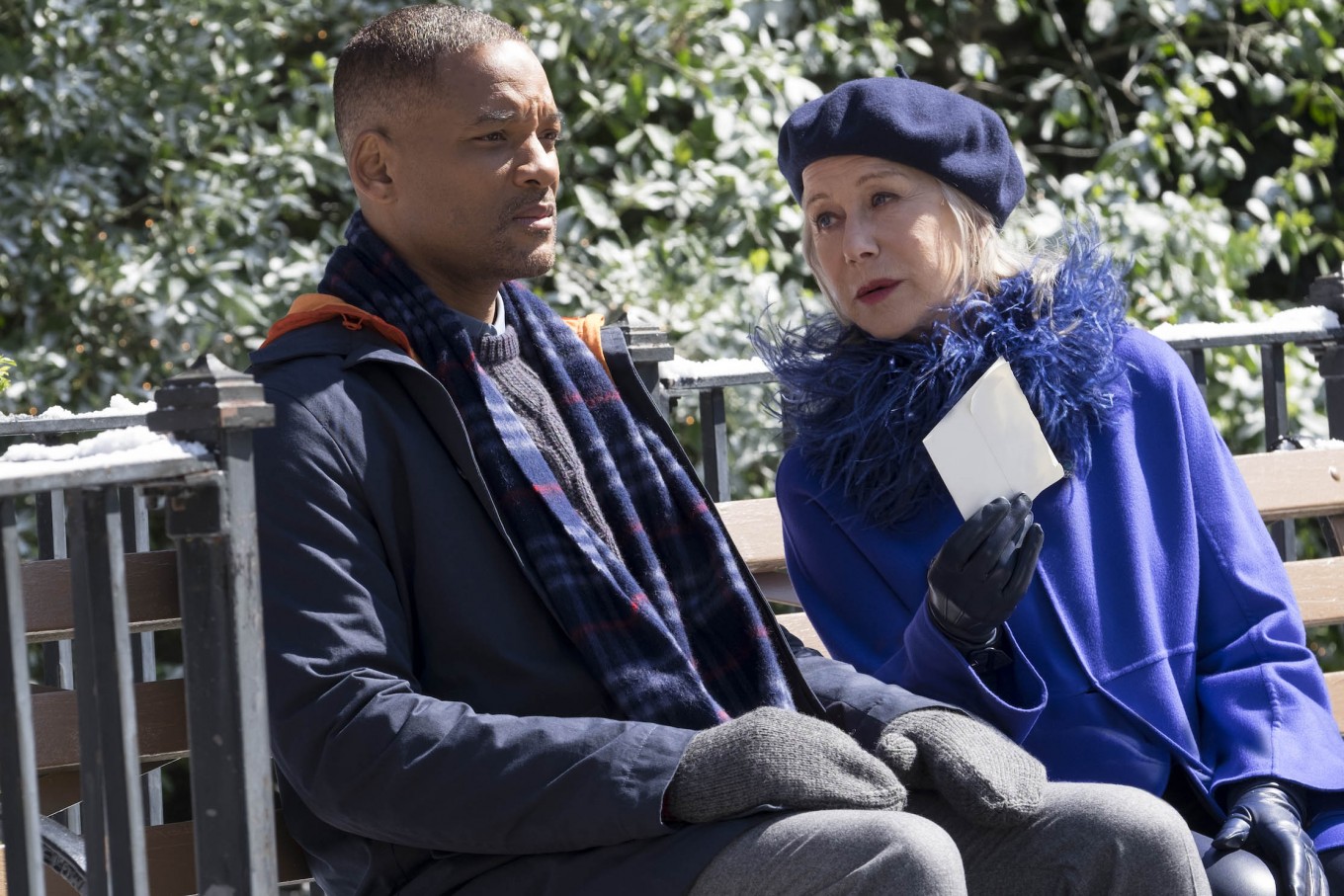Popular Reads
Top Results
Can't find what you're looking for?
View all search resultsPopular Reads
Top Results
Can't find what you're looking for?
View all search resultsReview: 'Collateral Beauty', a solid depiction of overcoming grief
Change text size
Gift Premium Articles
to Anyone
D
irector David Frankel (The Devil Wears Prada, The Big Year) comes forth with yet another eloquently depicted drama that dissects the complexity of the human condition in Collateral Beauty.
The film features Will Smith as the anguished, grief-ridden man, Howard, who struggles with the loss of his 6-year-old daughter, which resulted in him writing accusatory letters not to people, but to things. The once energetic, enthusiastic head of an advertising company can be seen suffering from his self-inflicted and unorthodox path of overcoming grief by distancing himself from every bit of essence that makes up the world.
Three of his most trusted colleagues, Whit (Edward Norton), Claire (Kate Winslet) and Simon (Michael Pena) strive to circumvent their ways into helping Howard recuperate as the four of them disparately experience what it means to truly comprehend the meaning of life's three abstractions, which Howard in the opening act describes, “We long for LOVE, we wish we had more TIME, and we fear DEATH.”
How this film is laid out, just like how modern-day, coming-of-age comedy movies do that hark conventionality, certainly has managed to betray that sequence. From start to finish, this film knows how to discreetly impart values that dismantle elements of disdain, skepticism and cynicism.
As the film pans out into three years in the future, things start to pick up and Howard has transitioned into his jaded self while his colleagues begin to question his competency in the company. As a result, Whit, Claire and Simon coincidentally cross paths with three theatrical actors: Brigitte (Helen Mirren), Amy (Keira Knightley) and Raffi (Jacob Latimore), which they later on hire to intervene in Howard’s life and, at the same time, bring him back to reality.
Howard’s character, to be specific, is the purest manifestation of brokenness. He goes to such extent as to harm himself mentally to the point where he deprives himself of everything he cares for—including the memories of his own daughter. During his moment with “Death”, Brigitte gets a snapshot of his grief when he screams, “All these things people spoke of death being something that we ought to accept in order to attain a peace of mind… I get ALL of that. But in the end, my daughter is dead, and she is not right here with me, holding my hand.” This scene followed by a tear dripping down his face really captures the true nature of the human condition. Furthermore, Will Smith’s portrayal of this character brings out such a fatherly charisma from his performance, which is admittedly reminiscent of A Pursuit of Happiness.
(Read also: Review: The force is strong with 'Rogue One')
Also, Howard’s recurring interactions with Madeleine (Naomie Harris) are complemented with their contrasting personalities. Although Madeleine’s pursuit in rehabilitating Howard seems inconclusive, the film knows how to connect seemingly haphazard clues that lead to Madeleine being Howard’s wife. Hence her story entailing her daughter’s untimely death, which she constantly brings up in discussions with Howard. In short, this also adds another layer to Howard’s character, given the disheartening adversity he dares to face in forcibly stripping himself apart from the memories of his daughter and wife just to overcome grief.
Each of the supporting characters too are held accountable for their inability to push through each of their personal problems. In the end, their efforts in hiring Amy, Brigitte and Raffi into representing love, time and death, respectively, resulted in rectifying the paths they so negligently strayed away from. Whit’s interaction with Amy leads him to reconciling with his daughter; Simon’s banter with Brigitte allows him to come to terms with his sickness and confesses to his wife; and Claire’s interaction with Raffi makes her believe that being patient and waiting is not a too bad of an idea.
The performances of the three colleagues are a bit monotonous to a certain extent. Although, Michael Pena (Simon)'s stood out the most as he showed emotion at the thought of impending grief of leaving his family should his cancer get the best of him.
In conclusion, one of the most prominent elements in this film is that the main protagonist is not carried under the illumination of the limelight. The film delivered itself gradually; teasing the amount of suspense and intensity generated with great balance. This film betrays conventionality of comedy-family drama movies in many ways. In terms of pacing as well as editing, some of the sequences are a bit rough and unpolished, but nonetheless, they are of no major concern. The ending, as a matter of fact, felt rushed—the last scene certainly dictates no explanation to what purpose is when the “three abstraction characters” (love, time and death) appear in front of Howard for a split second. More importantly, the sound design complements what each of the characters really embody. (fir/kes)











